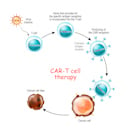
The Importance of Soft Skills in the Workplace
Soft skills, also known as core skills, are attributes that enable someone to fit into the workplace and interact effectively with others. In other words, soft skills are needed to get things done effectively and achieve the best outcomes. They include communication, attitude, flexibility, manners, empathy, problem-solving, and conflict resolution. Soft skills transcend all professions while hard skills (also known as technical skills) relate to a specific job or profession.
Healthcare is a buyer’s market with a direct relationship between patient satisfaction and a healthy bottom line. Each step in the spectrum of care – from scheduling to the post-visit satisfaction survey – culminates in the overall patient experience. Soft skills are necessary to build relationships with all customers, whether they are patients, family members, colleagues, managers or vendors. Quality outcomes, which are co-produced by professionals who work interdependently across the healthcare continuum to achieve a common goal, are dependent on strong relationships that are made possible by soft skills and effective communication.
Seek to Understand before Seeking to be Understood
Communication takes many forms including verbal, non-verbal and written. Non-verbal communication, or what we do while we speak, often says more than the actual words. For example, if you are engaged in conversation with a patient or their family, pay attention to facial expressions, posture and eye contact for clues as to the effectiveness of your communication.
We must remember that communication is a two-way street, one that involves listening and expressing—both components are equally important for a successful outcome. It is important to understand one’s audience and consider their professional background, level of expertise, and education in order to craft an effective message.
The art of listening
One of The Core Elements of Effective Patient Care Includes The Following Concepts:
Listen: Not just to words but to tone as well.
Concentrate: Be fully present in the moment and concentrate on what the other person is saying; resist the temptation to allow your mind to wander to what you want to say next.
Reconfirm: Occasionally paraphrase the client’s words to demonstrate that you understand.
Wait: In conversation, patience is a virtue and interrupting is a sin. Be patient—some people take longer to get their point across than others.
Gratitude: Always show your appreciation by thanking the speaker for their time.
Tips for Success
Set your customer’s expectations appropriately—never overpromise and under-deliver.
Know when to pause. Offer your customer the opportunity to contemplate your message, especially when dealing with a complex issue.
Pay careful attention to the fact that tone can be easily misconstrued in emails—carefully craft your messages.
Think and think again before you communicate when angry, irritated, or annoyed.
Have the courage to admit that you don’t know everything. Respect is given to those willing to research the solution to a complex question.
Craft your message carefully and frame it with care. Your message is much more likely to be heard if you take time to do this.
Treat everyone with whom you interact as you would expect to be treated.
Be in the moment and be kind. It will set you apart from the vast majority.
Words to Live By
If you can’t say it in front of your mother, don’t email it
If you don’t know if it is true, don’t repeat it
If it will cause unnecessary hurt, don’t share it
If it is not constructive, don’t engage in it
Sometimes less is more




